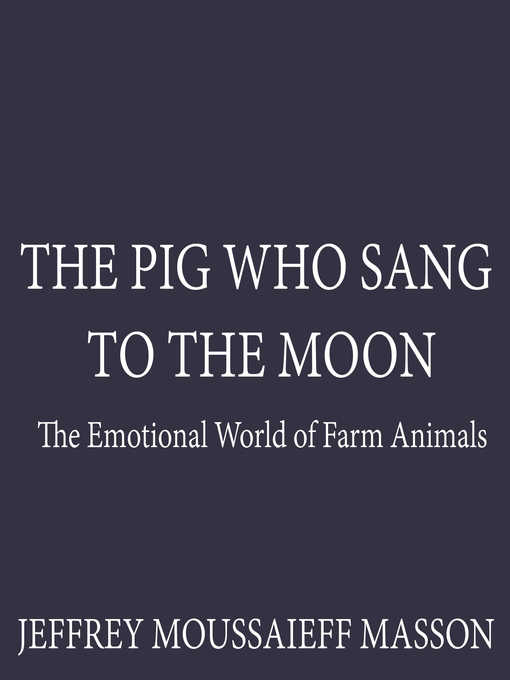
The Pig Who Sang to the Moon
The Emotional World of Farm Animals
کتاب های مرتبط
- اطلاعات
- نقد و بررسی
- دیدگاه کاربران
نقد و بررسی

Quite different from the largely anecdotal bestsellers Masson has done in the past, such as THE NINE EMOTIONAL LIVES OF CATS and WHEN ELEPHANTS WEEP, this is a harrowing and emotional plea to look at the horror and inhumanity forced on domestic livestock around the world. Glimpses into the brutal conditions under which chickens, pigs, and cows, to name just a few, are forced to survive in huge factory farms are juxtaposed with tales from " farm sanctuaries," where ordinary people who have chosen to lend a hand in rehabilitation observe the intelligence and ultimately forgiving nature of these "dumb animals." Be prepared to take up the vegetarian creed after this listen. Tim Jerome gives a perfect performance with a delivery both intense and compelling. You'll find yourself caught up in this unflinching depiction and caring deeply about our self-imposed position at the top of the food chain. D.G. Winner of AUDIOFILE Earphones Award (c) AudioFile 2004, Portland, Maine

September 29, 2003
The horrors have been pointed out before—that factory farm chickens are genetically altered, debeaked without anesthesia, and crammed into overcrowded coops; that calves are separated from their mothers and kept in dark crates to become veal. Here Masson (Dogs Never Lie About Love) makes the case that the animals humans eat on a regular basis—pigs, chickens, sheep, cows and ducks—feel, think and suffer. Each animal gets a chapter, in which Masson interweaves folklore, science and literature (he quotes Darwin, Gandhi and the Bible) with his observations of the animals' behaviors. He relates how a pot-bellied pig saved the life of her keeper and visits Dr. Marthe Kiley-Worthington, of Little Ash Eco-Farm in England, whose cow does agility tricks; he also interviews those who raise animals for profit. But there is no subtlety in his sometimes nauseatingly Edenic anecdotes: abused animals always come around and we live happily ever after. The text is pocked with far-fetched hypotheses (e.g., "A woman coming across a young lamb in ancient times might well have nursed the lamb" to explain the domestication of sheep). Arguing that all farming of animals for food is wrong (even eggs), Masson rebuts the fallacy that farm animals would die out without us, but doesn't say how we are to make the transition. His peripatetic style lacks transitions, for example going from cock fighting, which gets only one paragraph, to meditations on why roosters crow at dawn. Despite the holes in his preachy argument, his narrative contains some solid, fascinating information on the emotional life of farm animals.

























دیدگاه کاربران